Uncategorized
-
 Climate
ClimateReaders question climate’s freshwater effects
Warming lakes, windmills for the Arctic, mosquito control and more in reader feedback.
-
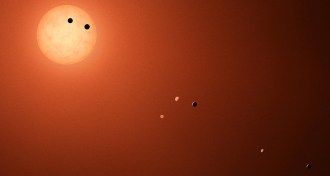 Astronomy
AstronomyLife might have a shot on planets orbiting dim red stars
The number of planets in the habitable zone of dim red suns, known as M dwarfs, is growing. They’re a good place to look for life.
-
 Life
LifeAncient DNA shakes up the elephant family tree
DNA from straight-tusked elephant fossils is forcing scientists to reconsider the history of elephant evolution.
-
 Health & Medicine
Health & MedicineNew kind of ‘tan in a bottle’ may one day protect against skin cancer
A drug for activating melanin production without using ultraviolet radiation works in human skin samples.
-
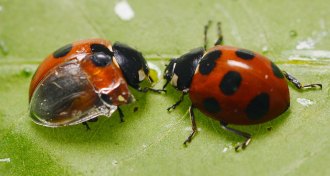 Life
LifeLadybugs fold their wings like origami masters
Ladybug wings could lead to new foldable technologies.
-
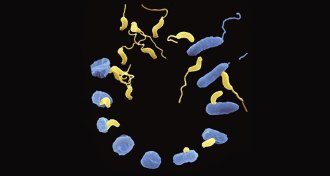 Health & Medicine
Health & MedicineLive antibiotics use bacteria to kill bacteria
Certain bacteria will destroy other bacteria without harming humans. They may be an answer to antibiotic-resistant infections.
-
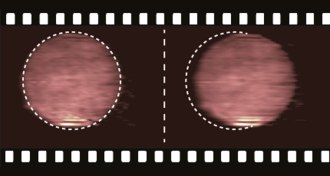 Tech
TechNew video camera captures 5 trillion frames every second
A new camera’s record-breaking speed offers researchers a window into never-before-seen phenomena, such as combustion reactions.
-
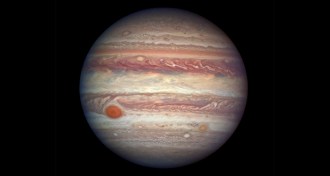 Planetary Science
Planetary ScienceJupiter’s precocious birth happened in the solar system’s first million years
Jupiter formed within the first million years of the solar system, according to meteorite measurements.
-
 Physics
PhysicsWater circling a drain provides insight into black holes
Water waves scattering off a vortex can exhibit rotational superradiance, an effect predicted to appear in black holes.
-
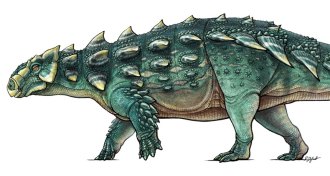 Paleontology
PaleontologyNew dinosaur resurrects a demon from Ghostbusters
The most complete skeleton of an ankylosaur shows an armored, club-tailed dinosaur with a head like a Ghostbusters demon.
-
 Physics
PhysicsFaux particles commit physics faux pas
Quasiparticles present in a solid material break the rules of particle physics.
-
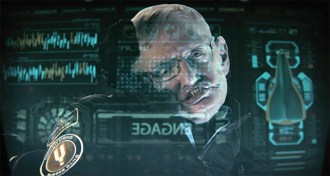 Science & Society
Science & SocietyCuriosityStream satisfies a science-hungry audience
CuriosityStream, an online streaming service, offers viewers a plethora of science documentaries, including originals from Stephen Hawking and David Attenborough.